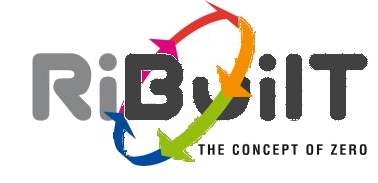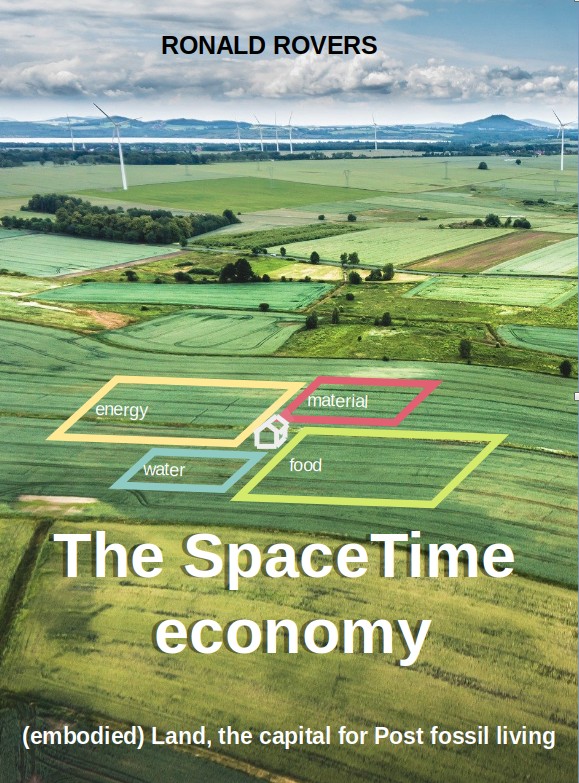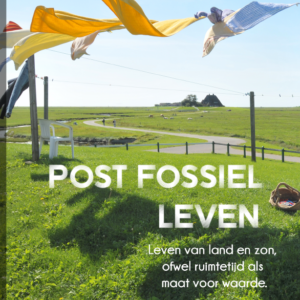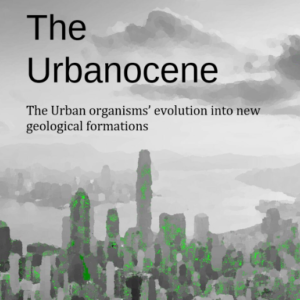the Space-Time Economy e-book version > more info
€9.50
the space time economy… English language e-book version of the Dutch paperback book.
What drives us to consume as much as we can? Is it a new physical law? Max Power maybe? Leading to max Mass, max Money, Max stuff etc?
In any case we seem to be stuck with it: everything has become a product, only suiting an individual temporarily, not adding anything to the system, the community, for lasting growth. Well, with all the disadvantages that come with it, depletion, pollution, loss of biodiversity, climate change.
But what is possible, without overloading the system? Contrary to what is often claimed, everything appears to be renewable, part of a cycle, even if it can last millions of years. Is there a measure for this, can we express everything in 1 absolute unit, and see how much is available to each of us per unit of time, for food, material energy and water. Without fossil fuels its all dependent on one source that does not deplete, providing a constant flow of energy: the sun. And the way we use land to capture solar energy in all kinds of forms.
Land, over time, appears to determine the budget to live on without loss of quality of the system. Or a space-time relationship.
But how? That is the big question. There are a few things in the way, including private land ownership. If it is all owned, newcomers have no place to live. And no budget to live from
Description
How many bicycles can someone wear out in a lifetime? How much land is a reasonable and fair share to live on? What is the real potential of the Earth, to live sustainably with 8 billion people? Without ruining the system or irreversibly depleting supplies?
This book is not about CO2, just one of the consequences of our lifestyle: ‘Max Power’, maximizing consumption. This is about the Post Fossil era, our lifestyle after the fossil era. What turns out to be of true value: value, based on the potential of the Earth to supply and cluster raw materials. Land is our real capital, the primary intermediary for free energy coming from the sun, the growth of society, to capture and store energy in different forms, it is also necessary to support biodiversity even shape socio-cultural values. The real barriers to actually live within given space-time, are self-invented laws and rules, the invention of money, and finally: ‘property’. Even if we wanted to, we are unable to regulate things, all the land has already been given away…
The story is amply illustrated with examples, life in old and new cultures, like the Edo period in Japan in the 17th and 18th centuries, or recent developments in Costa Rica the most sustainable country according to the UN.





